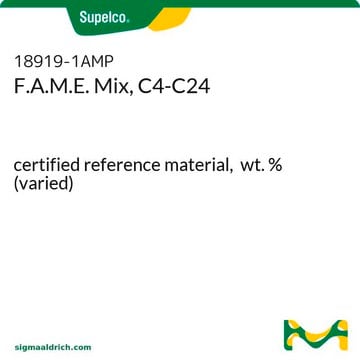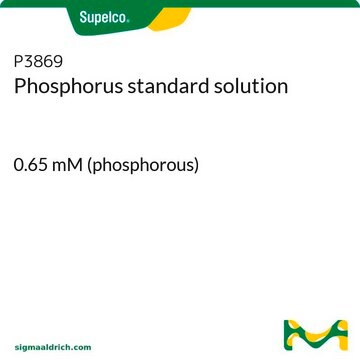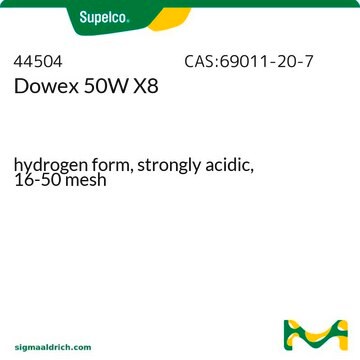92732
Trimethylsulfonium hydroxide solution
~0.25 M in methanol, for GC derivatization, LiChropur™
Synonym(s):
TMSH
About This Item
Recommended Products
grade
for GC derivatization
Quality Level
form
liquid
quality
LiChropur™
reaction suitability
reagent type: derivatization reagent
reaction type: Alkylations
packaging
pkg of 10 × 1 mL
concentration
~0.25 M in methanol
technique(s)
gas chromatography (GC): suitable
storage temp.
2-8°C
SMILES string
[OH-].C[S+](C)C
InChI
1S/C3H9S.H2O/c1-4(2)3;/h1-3H3;1H2/q+1;/p-1
InChI key
MDTPTXSNPBAUHX-UHFFFAOYSA-M
General description
Application
Other Notes
Legal Information
Signal Word
Danger
Hazard Statements
Precautionary Statements
Hazard Classifications
Acute Tox. 3 Dermal - Acute Tox. 3 Inhalation - Acute Tox. 3 Oral - Eye Irrit. 2 - Flam. Liq. 2 - Skin Irrit. 2 - STOT SE 1
Target Organs
Eyes,Central nervous system
Storage Class Code
3 - Flammable liquids
WGK
WGK 2
Flash Point(F)
51.8 °F - closed cup
Flash Point(C)
11 °C - closed cup
Personal Protective Equipment
Choose from one of the most recent versions:
Already Own This Product?
Find documentation for the products that you have recently purchased in the Document Library.
Customers Also Viewed
Our team of scientists has experience in all areas of research including Life Science, Material Science, Chemical Synthesis, Chromatography, Analytical and many others.
Contact Technical Service
















